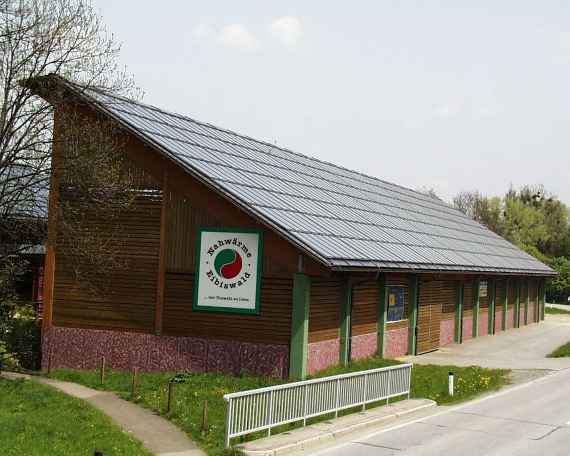In the early 1990s, it was common practice in Austrian municipalities to heat with oil because of low oil prices. Ten years later, quite a lot had changed in this regard; heating with fossil fuels became increasingly unattractive and alternatives were being demanded. At this time, many rural municipalities were already relying on heating supplies from biomass district heating plants.
However, any benefits from using carbon-neutral fuels are put into perspective if deficiencies in design and implementation, as well as in the operation of the plant lead to low levels of overall plant efficiency and increased heating prices. klimaaktiv “QM Heizwerke” (heating plant quality management) was therefore set up in 2006 as an Austria-wide quality management programme to improve the technical quality and efficiency of biomass heating plants and district heating networks. This objective is achieved by associated quality control which supports the design, construction and operation of the plant. Quality advisers who are specially trained by klimaaktiv’s “QM Heizwerke” team, support the plant operators during the whole design and construction process and ensure that the quality standards of klimaaktiv are complied with.
Application of the quality management programme is obligatory for biomass district heating projects that receive investment funding from Austria´s environmental support scheme. In practice, quality management takes place via a central database that charts the whole quality process.
Quality management process
Each district heating project needs assessment which identifies all data associated with future heating consumers. This data forms the basis for the subsequent planning process and is of utmost importance. Experienced planners as well as the municipality should therefore be involved in the assessment so as to ensure that the future development of the area being supplied is considered in addition to the current situation. Moreover, municipal and public buildings (e.g. schools) are often the most important heating consumers. The aim is to define a technically, economically and environmentally feasible area of supply and to prepare a detailed technical and financial feasibility study. Thus, with little financial expense, the project can be steered in the right direction and a decision can be made as to whether or not the project is feasible. This process forms the basis for the subsequent design and construction process (tendering and detailed design, construction, commissioning, monitoring and optimisation) which should also be led by experienced engineers.
klimaaktiv also defines a series of minimum quality requirements relating to standards of execution and key figures. These ensure that the quality of technical execution and the efficiency of the installation are high. This in turn guarantees that the installation has a long operating life with low operating, maintenance and fuel costs. Furthermore, the quality management programme also contributes to ascertaining that emissions remain low in all operating conditions. During the first phase of operation in particular, comprehensive monitoring and targeted optimisation of the plant are necessary to achieve optimal operation.
klimaaktiv supports this by specifying minimum requirements for biomass heating plant measurement equipment and data logging, and through the assistance provided by the quality advisers when this monitoring is carried out for the first time.
Improvement in energy efficiency
The efficiency of new and also existing biomass heating plants and district heating networks has improved significantly since quality management became obligatory. This is, for example, demonstrated by the reduction in network heat losses of up to 30 percent which occurred after the introduction of the quality management programme.
If biomass district heating plants are constructed and operated based on a coherent overall concept and in compliance with fundamental efficiency criteria, they can be operated successfully financially and environmentally, contribute significantly to a climate-friendly and sustainable energy supply as well as increase regional value creation. Advice and further information can be obtained from the klimaaktiv "QM Heizwerke" team.


